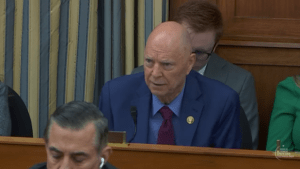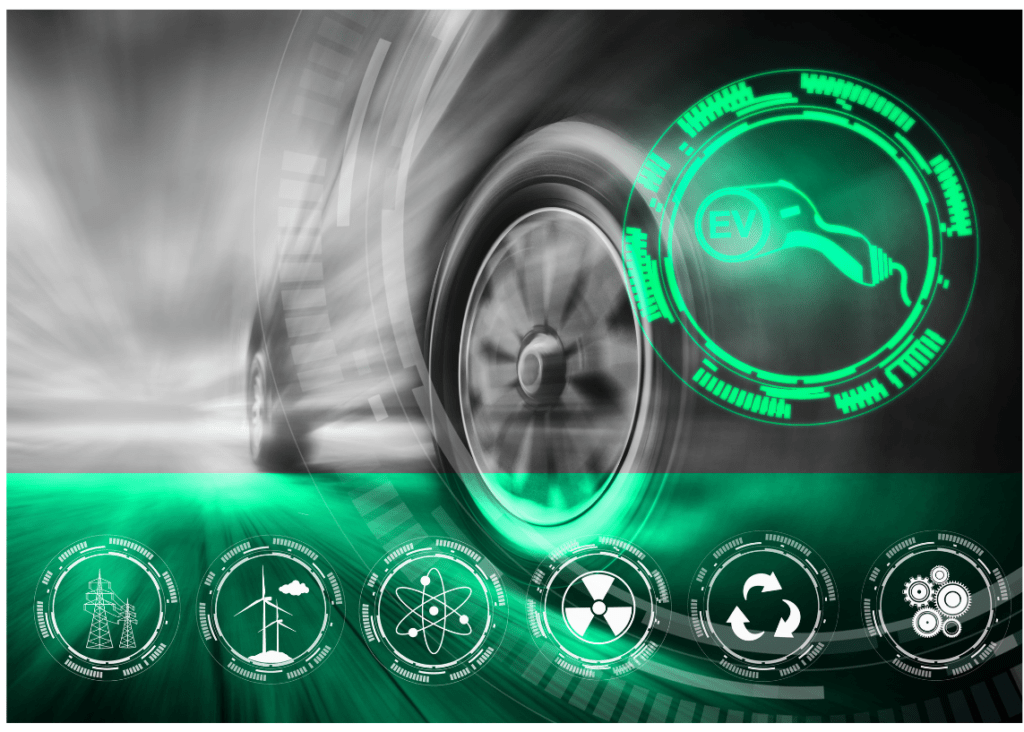International standards organizations, like the famous ISO 9000 family of quality management systems standards, are in China’s crosshairs. To some in the U.S., that’s a problem. As China climbs fast up the advanced technologies ladder, China’s more innovative, global corporations could become standards leaders.
Rep. Bill Posey (R-FL) asked the sole witness in Wednesday’s House Science & Technology Committee hearing about what that all means to American advanced manufacturing.
The National Security Agency, one of America’s leading intelligence bureaus, said the CCP was “co-opting international standards boards”. He asked witness Laurie Locascio, director of the National Institute of Standards and Technology, if she agreed with that assessment. [Locascio’s testimony to the Committee, May 10]
“I’ve paid a lot of attention to this issue and China is present in much more prominently in the international standards organizations. They have really laid down the gauntlet when they set forth their China Standards 2035 Strategy a few years ago which stated that their intent is to be the global gold standard. With that intent in mind, they have increased participation in these organizations, though we still have more leadership positions (in those organizations) than China has, but they now have many participants in many different forums. It’s not to say we can’t worry about it.” — Laurie E. Locascio, Director, National Institute of Standards and Technology, House Science & Technology Committee hearing, May 10, 2023.
Locascio said that the White House’s May 4 announcement of the National Standards Strategy for Critical and Emerging Technology was important to prepare for a world where China is a serious rival in advanced tech, like artificial intelligence, she said.
Posey asked if her organization tracks the standards that China comes up with and that are becoming adopted by other countries. But she said the government does not track that information. This would likely be other emerging market countries using China tech or developing systems that work with China tech that have to meet a certain standard.
“What are the dangers if China were to lead the technological development standards for artificial intelligence?” Posey asked.
“It is truly existential when you think about who is going to be the leader on the next standards (for industry) for AI. We do not want autocratic societies instilling their values into a global gold standard in how to produce global AI,” she said.
In June 2022, two senior advisors for the Center for International and Strategic Studies, one of the biggest national security think tanks in Washington, wrote that if the United States wants to continue being a leader in innovation, it needed to “shore up its commercial competitiveness, secure its national security advantages, and sustain its domestic economic growth and job creation potential.” While this consideration is not new, the strategic environment within which to realize these objectives has changed in fundamental ways, CSIS report authors wrote, adding, “The United States today confronts a world of geopolitical instability where its primacy in science, technology, and innovation is being challenged by other nations seeking to leverage the benefits of this potential for their own commercial advantage and national power.”
A 2021 article by the Wall Street Journal warned of this, saying “mundane though it may sound, this (standardized) uniformity is critical to international trade in how it guarantees that bolts, USB plugs and shipping containers can all be used interchangeably world-wide.”
The standards reflect the consensus of international standards organizations long dominated by the West. China now wants to take the lead in fields of the future. China is employing state funding and political influence to try to define the norms for all manner of cutting-edge technologies that span telecommunications, electricity transmission and artificial intelligence. And the dominance of technical standards underpinning information and communications technologies – of which the U.S. is largely dependent on China imports already – is an important part of China 3.0. The economy has gone from Happy Meal toy and Nike shoe-making economy, to global manufacturing hub in the late 90s early 2000s as it joined the World Trade Organization, and its third iteration is one of TikTok, Temu, and advanced technologies important to the U.S. such as new solar power technologies and – of course – EV car batteries.
Standards based on patented technologies often require users to pay licensing fees or intellectual property fees. Qualcomm earns billions of dollars annually from patents that underpin cellphone systems. China wants a piece of that for companies like Huawei and ZTE, among others.
Standards are gaining urgency as rules are being decided for a new generation of technologies dependent on 5G networks, including driverless vehicles and the Internet of Things—advances that will connect the digital and physical worlds as never before, the WSJ reported in 2021.

Bill Posey, Congressman from Florida, addressing a witness during the May 10 House Science & Technology Committee.
“How is China’s state-led approach to technology development a challenge to the rules and approaches that the U.S. and international standards bodies use in regard to developing those standards?” Posey asked.
Locascio responded by talking about the importance of working with allies to “make sure the rules remain the same. This has led to a productive international standards arena for decades and decades that has really benefited American markets.”
“Can China use standards as a tool for protection?” he asked.
Locascio responded: “I think as long as they are still present at the international standards organizations, then they will not be building barriers. If the best possible technical standards for the world wins, and if that is true, and if China is part of the negotiations, then it will not be a barrier to trade. But if they become more isolated and adopt mostly internal standards and do not participate in standards organizations, then we have a bifurcated world and that will lead to technical barriers to trade.”












